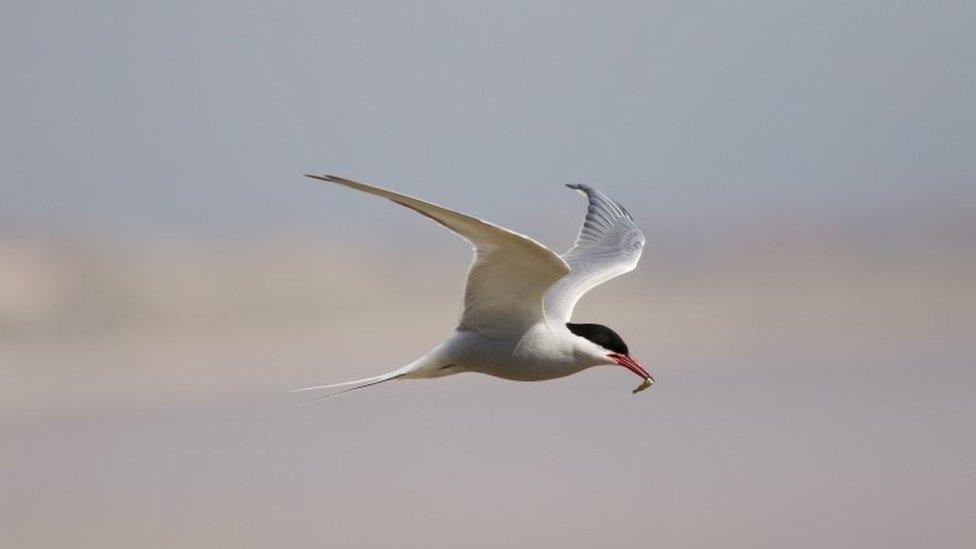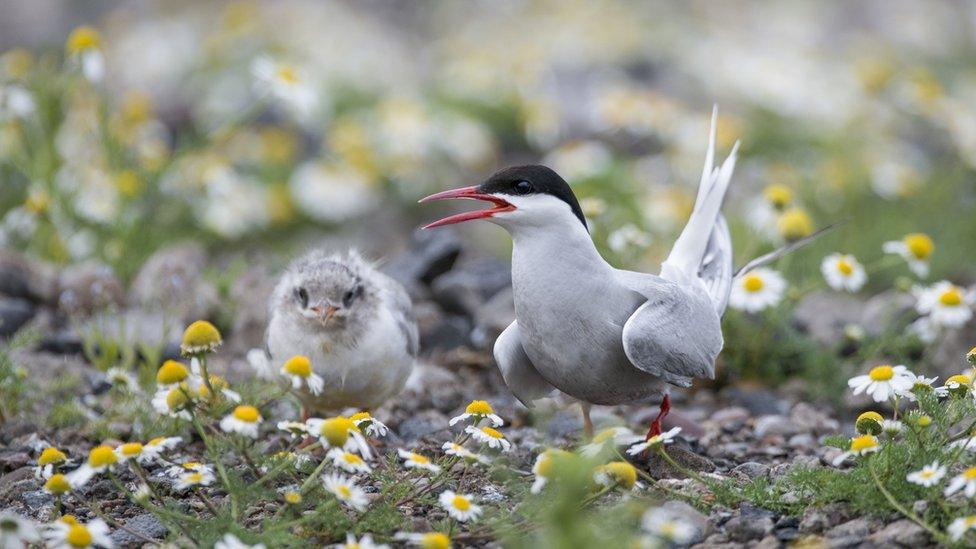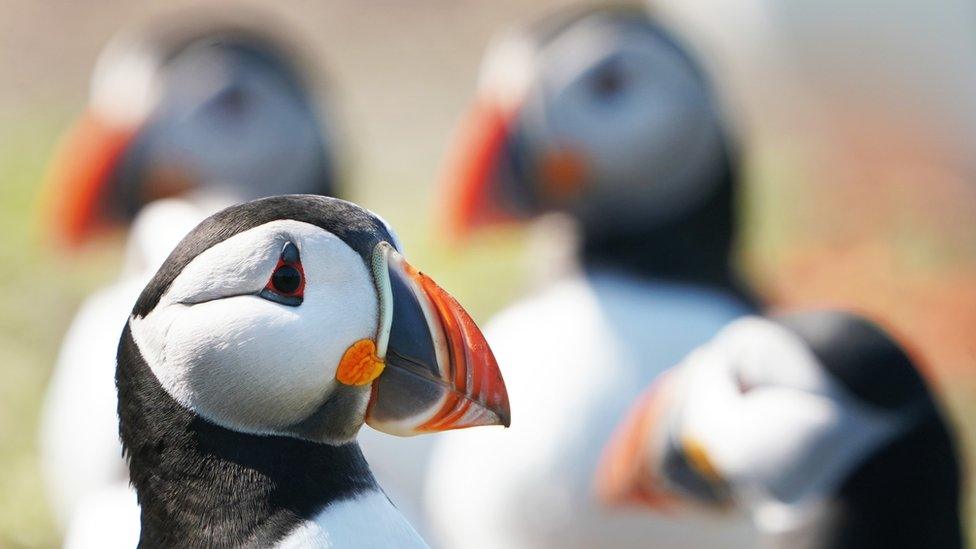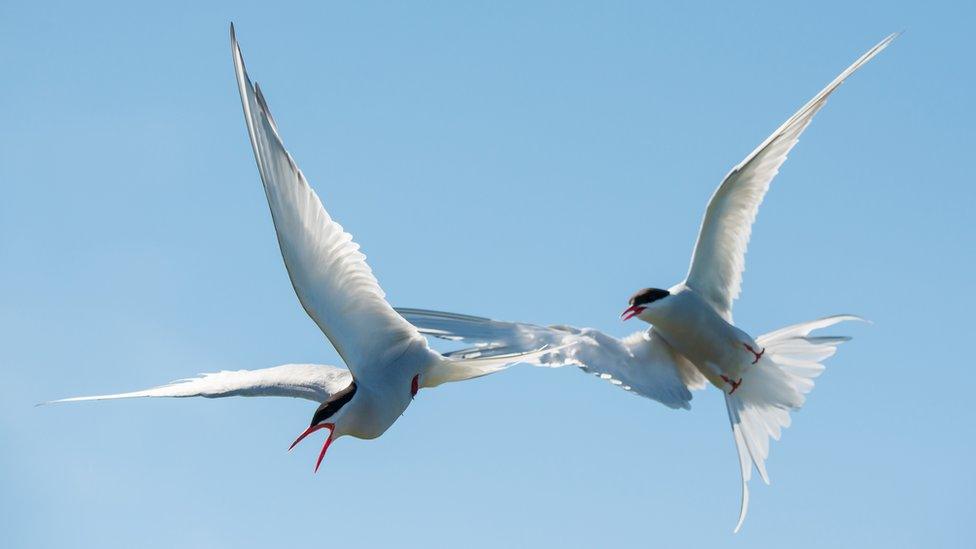Lockdown and weather hampers Arctic tern breeding in Northumberland
- Published

Arctic terns have the world's longest migration route where they return to nest from Antarctica
Arctic terns have failed to fledge chicks at one of their largest breeding sites for the first time in 40 years.
Extreme weather hit the season at Long Nanny in Northumberland, while the Covid-19 lockdown hampered conservation efforts, the National Trust said.
The terns have the world's longest migration route where they return from Antarctica to nest.
In 2019 more than 400 chicks fledged from nests at the site, watched over 24 hours a day by rangers and volunteers.
Loose dog
The Trust had hoped 2020 would be another good year for the ground-nesting birds, after a sand spit formed to the south of the estuary that was expected to provide defence against high tides.
However the season was hit by exceptionally high tides in June, made worse by strong onshore winds, which washed half the nests away.

It is thought the ground-nesting birds deserted the site after being disturbed by predators and people
The Trust said many of the remaining nests were preyed on by rats and stoats, as rangers were unable to provide their usual round-the-clock care due to travel restrictions imposed by lockdown.
Rangers believe the remaining Arctic terns began to desert their nests by the end of June after being disturbed by predators and people walking through the colony.
A loose dog was thought to be the final straw, causing the seabirds to leave the site entirely, the organisation said.
Little terns, one of the UK's smallest seabirds, fared better, with up to six chicks taking to the wing to begin their migration to West Africa.
Countryside manager Gwen Potter said: "It has been really sad to see our Arctic terns abandon the site, but we're hopeful they'll be back next year.
"They are an amazingly hardy species, with an epic migration, but as ground-nesting birds they're also extremely vulnerable."

Follow BBC North East & Cumbria on Twitter, external, Facebook, external and Instagram, external. Send your story ideas to northeastandcumbria@bbc.co.uk, external.
- Published2 September 2020

- Published27 June 2019

- Published29 August 2017
